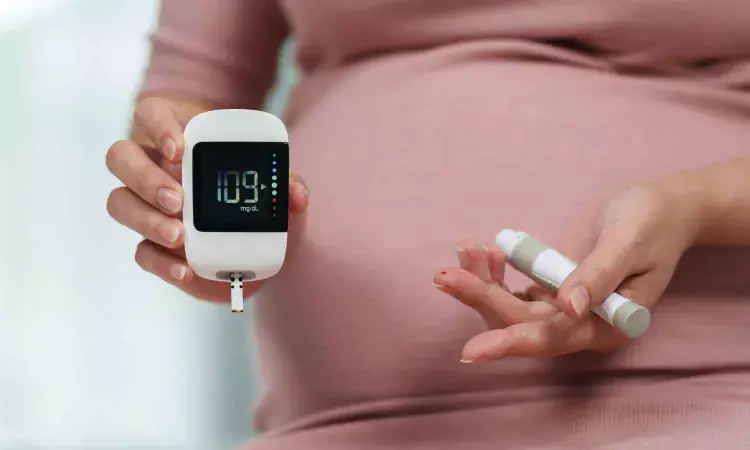- Home
- Medical news & Guidelines
- Anesthesiology
- Cardiology and CTVS
- Critical Care
- Dentistry
- Dermatology
- Diabetes and Endocrinology
- ENT
- Gastroenterology
- Medicine
- Nephrology
- Neurology
- Obstretics-Gynaecology
- Oncology
- Ophthalmology
- Orthopaedics
- Pediatrics-Neonatology
- Psychiatry
- Pulmonology
- Radiology
- Surgery
- Urology
- Laboratory Medicine
- Diet
- Nursing
- Paramedical
- Physiotherapy
- Health news
- Fact Check
- Bone Health Fact Check
- Brain Health Fact Check
- Cancer Related Fact Check
- Child Care Fact Check
- Dental and oral health fact check
- Diabetes and metabolic health fact check
- Diet and Nutrition Fact Check
- Eye and ENT Care Fact Check
- Fitness fact check
- Gut health fact check
- Heart health fact check
- Kidney health fact check
- Medical education fact check
- Men's health fact check
- Respiratory fact check
- Skin and hair care fact check
- Vaccine and Immunization fact check
- Women's health fact check
- AYUSH
- State News
- Andaman and Nicobar Islands
- Andhra Pradesh
- Arunachal Pradesh
- Assam
- Bihar
- Chandigarh
- Chattisgarh
- Dadra and Nagar Haveli
- Daman and Diu
- Delhi
- Goa
- Gujarat
- Haryana
- Himachal Pradesh
- Jammu & Kashmir
- Jharkhand
- Karnataka
- Kerala
- Ladakh
- Lakshadweep
- Madhya Pradesh
- Maharashtra
- Manipur
- Meghalaya
- Mizoram
- Nagaland
- Odisha
- Puducherry
- Punjab
- Rajasthan
- Sikkim
- Tamil Nadu
- Telangana
- Tripura
- Uttar Pradesh
- Uttrakhand
- West Bengal
- Medical Education
- Industry
Supplementation with probiotics may improve glycemic control in women with gestational diabetes: Study

Supplementation with probiotics may improve glycemic control in women with gestational diabetes suggests a study published in the BMC Endocrine Disorders.
Prior studies indicated the positive effects of probiotics on glycemic regulation in patients with gestational diabetes mellitus (GDM). Nonetheless, the results remain inconclusive. To address this, we conducted an umbrella meta-analysis to evaluate the impact of probiotics on glycemic indicators in GDM.
A comprehensive search was conducted on the PubMed and Scopus databases to identify all relevant meta-analyses of randomized clinical trials published until July 2024. The outcomes included serum hemoglobin A1C (HbA1c), fasting blood insulin (FBI), fasting blood sugar (FBS), homeostatic model assessment for insulin resistance (HOMA-IR), quantitative insulin sensitivity check index (QUICKI), homeostatic model assessment of beta cell function (HOMA-B), C-peptide, and oral glucose tolerance test (OGTT). Standardized mean difference (SMD) was used to test the effects. RESULTS: In total, 27 studies, comprising 33,378 participants, were included in the analysis.
Probiotics resulted in a significant decrease in FBS (SMD: -0.39, 95% CI: -0.56 to -0.23), especially when administered for ≤ 7 weeks. Significant reductions were also observed in FBI (SMD: -1.99, 95% CI: -2.41 to -1.58), HOMA-IR (SMD: -0.61, 95% CI: -0.72 to -0.50), and HOMA-B (SMD: -24.58, 95% CI: -30.59 to -18.56). Moreover, supplementation with probiotics significantly improved QUICKI (SMD: 0.007, 95% CI: 0.004 to 0.01).
There was significant evidence of heterogeneity and publication bias. No significant effects were observed on 1-h OGTT, 2-h OGTT, HbA1c, and C-peptide. No dose-specific effect was observed. Supplementation with probiotics could improve glycemic control in women with GDM. The effects of probiotics on HOMA-IR, HOMA-B, and fasting insulin were clinically important, while, their effect on FBS was not clinically important.
Sun, Guixia, et al. "The Effect of Probiotics On Gestational Diabetes Mellitus: an Umbrella Meta-analysis." BMC Endocrine Disorders, vol. 24, no. 1, 2024, p. 253.
Dr. Shravani Dali has completed her BDS from Pravara institute of medical sciences, loni. Following which she extensively worked in the healthcare sector for 2+ years. She has been actively involved in writing blogs in field of health and wellness. Currently she is pursuing her Masters of public health-health administration from Tata institute of social sciences. She can be contacted at editorial@medicaldialogues.in.
Dr Kamal Kant Kohli-MBBS, DTCD- a chest specialist with more than 30 years of practice and a flair for writing clinical articles, Dr Kamal Kant Kohli joined Medical Dialogues as a Chief Editor of Medical News. Besides writing articles, as an editor, he proofreads and verifies all the medical content published on Medical Dialogues including those coming from journals, studies,medical conferences,guidelines etc. Email: drkohli@medicaldialogues.in. Contact no. 011-43720751


